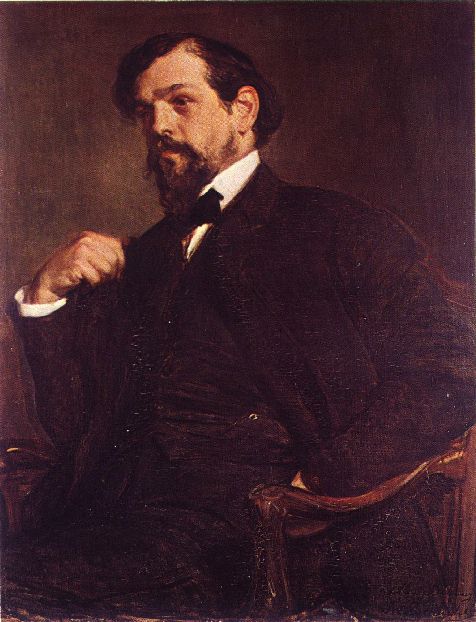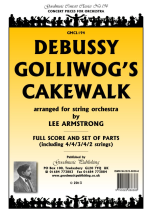Golliwog's Cakewalk
Product ID: GM2 CL194
By Claude Debussy
Publisher:
Goodmusic
Arranger:
Armstrong
Series:
Goodmusic Concert Classics
Genre:
Impressionism
Line Up:
String Orchestra
Duration:
2:30
Level: 3
Set & Score
This item is out of stock
About this item
Golliwog’s Cakewalk is the last in a suite of six pieces entitled "Children’s Corner" that Debussy wrote for solo piano which was published in 1908. It was dedicated to Debussy's daughter, Claude-Emma (known as "Chou-Chou"), who was three years old at the time.
At the time of its composition, Golliwoggs were in fashion, due partly to the popularity at that time of the novels of Florence Kate Upton ("golliwog" is a later usage). They were stuffed black dolls with red pants, red bow ties and wild hair, somewhat reminiscent of the black-face minstrels of the time. This is a ragtime piece with its syncopations and banjo-like effects. The dynamic range is quite large and very effective. The second section of this dance is interrupted on several occasions by the love-death leitmotif of Richard Wagner's opera Tristan und Isolde, marked in the original avec une grande emotion (with great feeling). Each quotation is followed with banjo imitations. The cakewalk was a dance or a strut and the dancer with the most elaborate steps won a cake.
This excellent arrangement for string orchestra is by Lee Armstrong.
Instrumentation
String Orchestra
Reviews and rating
No review available, be the first to write one!

Composer
Claude Debussy (1862-1918)

Claude-Achille Debussy (22 August 1862 – 25 March 1918) was a French composer. Along with Maurice Ravel, he was one of the most prominent figures working within the field of impressionist music, though he himself intensely disliked the term when applied to his compositions.[3] Debussy is among the most important of all French composers, and a central figure in European music of the turn of the 20th century. He was made Chevalier of the Legion of Honour in 1903.
His music is noted for its sensory component and for not often forming around one key or pitch. Often Debussy's work reflected the activities or turbulence in his own life. His music virtually defines the transition from late-Romantic music to 20th century modernist music. In French literary circles, the style of this period was known as symbolism, a movement that directly inspired Debussy both as a composer and as an active cultural participant.
More info about the composer...



 Click above to view samples
Click above to view samples
